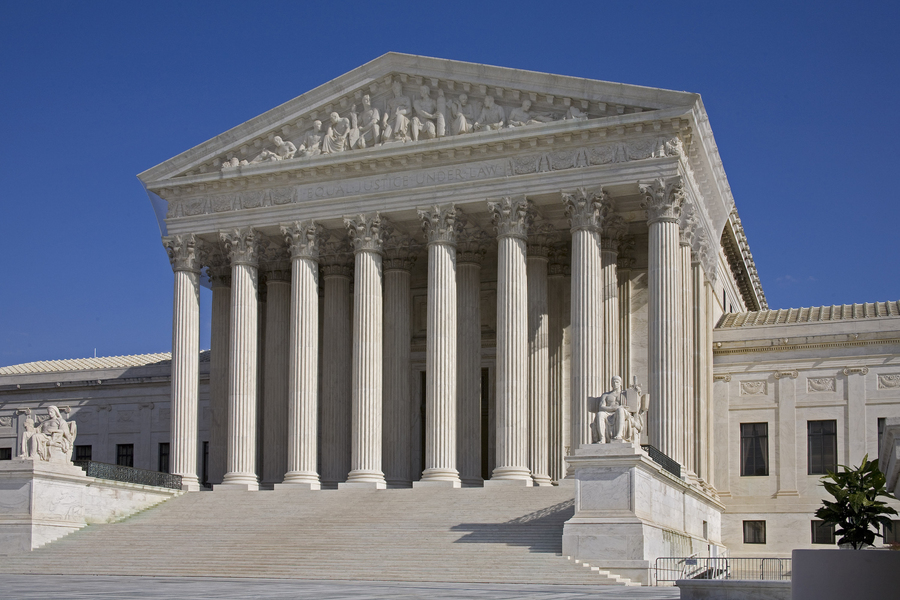The U.S. Supreme Court this week took the next step towards national marriage equality.
Oral arguments were held Tuesday before the Supreme Court justices, who are finally being asked to decide whether same-sex couples have a fundamental right to marry. Most legal scholars agree that the top court will find such a right and mandate marriage equality across the nation but, no matter which way the court comes down, it is sure to be a historic decision — likened by many as the Brown v. Board of Education or Row v. Wade ruling for the LGBT community.
The last big marriage-related decision out of SCOTUS came two years ago, when the court struck down a key portion of the federal ban on same-sex marriage. At that time, the court did not state whether it is unconstitutional to deny marriage benefits to same-sex couples, but rather that the federal government could not deny benefits to couples who were legally married by their respective states. Nearly immediately, the dominos began falling — federal agencies came in line with the ruling and lawsuits began spreading across the nation, followed by a landslide of states joining the list of those that sanction same-sex marriage. When the DOMA decision came down, nine states and Washington, D.C., allowed same-sex marriages; that number now stands at 37 plus D.C.
If SCOTUS rules in favor of marriage equality, that landslide could mirror and surpass that of 2013. In Pennsylvania, when a federal judge overturned the state ban on same-sex marriage last spring, we all witnessed how quickly things changed. Within minutes, Philadelphia City Hall opened the doors of its marriage-license office to same-sex couples. Overnight, companies had to start thinking about revising policies and paperwork. Couples who had been wedlocked were able to file for divorce and others who were waiting to start building their families until they had the support of state law behind them were able to move forward. The landscape for same-sex couples changed dramatically with the stroke of a pen — and that’s what could await the entire nation should SCOTUS do what most pundits believe it will.
That puts the community at an incredible tipping point; in just a few weeks, our nation’s LGBT community could see its greatest-yet victory. However, as we saw this spring with the onslaught of “religious-freedom” laws, legal victories certainly don’t eradicate homophobia; in some cases, the building acceptance of LGBT rights is mobilizing opposition.
If SCOTUS issues a favorable ruling, that opposition is sure to rear its ugly head — and that will mark the next phase of the LGBT-rights movement. Our community’s battles and priorities have evolved for decades, and we could soon find ourselves in another changing tide. But, as long as we’re on the other side of a victory, the next fight will be that much easier to wage.
Newsletter Sign-up
